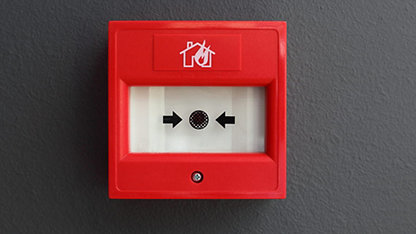RICS, one of the world’s leading built environment organisations, has partnered with Ekkist, the UK’s first health and well-being consultancy for the built environment, to launch a new guide to designing, delivering and managing healthier buildings.
A wealth of research [see below] shows how health is affected by a range of factors in the built environment, including noise, lighting, temperature, poor air quality and ease of doing physical activity. With people spending as much as 90% of their time indoors, designing for health can have significant benefits. For UK housing alone, research published by BRE found that the annual cost to the NHS of leaving people in the poorest housing was around £1.4 billion, with wider societal costs amounting to £18.5 billion each year.
RICS’ new guide builds on its International Building Operation Standards (IBOS). IBOS already goes beyond traditional measures of a building’s performance to include the experience of the people who use it; as part of this, the publication provides more advice on supporting people’s health and wellbeing.
The information covers every stage of a project, from the initial definition through to running the completed building. It sets out various ways in which planning and construction professionals can include features that promote health and well-being, or mitigate factors that damage health. This ranges from improving air quality to tackling loneliness.
Alongside the guide, RICS has also announced a new strategic collaboration with The International WELL Building Institute (IWBI), whose WELL Building Standard is the world’s leading roadmap for creating and certifying spaces that advance health and well-being, already used by more than 44,000 projects worldwide. The organisations will work together to encourage built environment professionals to adopt strategies that advance health and well-being in buildings and organisations worldwide. They will place particular focus on integrating health and well-being into the valuation of properties, working to advance benchmarking, regulatory frameworks and standards, with an emphasis on the built environment sector in Europe. RICS’ new guidance has also been informed by the IWBI’s standards among many others.
Paul Bagust, Head of RICS Property Practice, said: “Across the world, millions of people will be relying on the expertise of property professionals to ensure that the buildings they use on a daily basis are healthy environments, while organisations will also be relying on the same people to provide productive environments with well-being at their heart.”
Olga Turner Baker, Managing Director of Ekkist, said: “Health and well-being has entered the forefront of forward-thinking companies’ agendas. Organisations have realised that designing for health is pivotal to their success. As a result, the adoption of global standards has grown. As one of the first companies founded globally to solely focus on this discipline, Ekkist has seen the change first hand. Certifications provide a common language that is credible and clear, they help mitigate risk and future-proof buildings against occupier trends, support organisations with frameworks for transparency and accountability, and provide results. They create healthier and happier people and places and add tangible social and economic value.”
Ann Marie Aguilar, Senior Vice President, EMEA, IWBI, said: “We are proud to expand our existing relationship with RICS, and to pursue alignments between the WELL Standard and IBOS. Our joint efforts will help to highlight the rising importance of health and well-being in buildings, organisations and communities, and how strategies to integrate health into the valuation process can improve ESG performance.”
ENDS
Notes to editors
The new guide is The design, delivery and management of healthy buildings, 1st edition, and is available on the RICS website: https://www.rics.org/profession-standards/rics-standards-and-guidance/sector-standards/real-estate-standards/the-design-delivery-management-of-healthy-buildings-1st-edition
Why design for wellbeing?
- Modern populations can spend as much as 90% of their time indoors. (US EPA Report to Congress on indoor air quality).
- World Health Organization (WHO) data show that almost all the global population (99%) breathe air that exceeds WHO guideline limits for contaminants.
- While physical inactivity is responsible for 1 in 6 deaths in the UK, people in activity-friendly neighbourhoods get 90 minutes more exercise per week (Sport England).
- In hospitals, views of nature have been shown to reduce the perception of pain and increase recovery from operations by as much as 8.5%. (Research by R.S. Ulrich in Science).
- An estimated 2,000 heat-related deaths occur each year in England and Wales (House of Commons Environmental Audit Committee).
- In classrooms, children with access to brighter, daylit rooms can score as much as 7–18% higher in tests (Research by Heschong Mahone Group).
- Newly installed furniture, insulation, flooring, and wet-applied products (eg paint, adhesives, sealants) can significantly introduce Volatile Organic Compounds into living spaces for around 1 to 2 years (Research by S.B. Holøs et al, in International Journal of Ventilation).
- People living in areas with high levels of traffic noise are 25% more likely to develop depression than those living in quieter areas (Research by E.Orban et al in Environmental Health Perspectives).
About RICS
We are RICS. Everything we do is designed to effect positive change in the built and natural environments. Through our respected global standards, leading professional progression and our trusted data and insight, we promote and enforce the highest professional standards in the development and management of land, real estate, construction and infrastructure.
Our work with others provides a foundation for confident markets, pioneers better places to live and work and is a force for positive social impact.
About RICS IBOS
IBOS is a data-based approach that supports the measurement and management of buildings for strategic decision-making. Developed alongside the market, IBOS reaches beyond traditional ways of assessing building performance to add another dimension – user experience - and provides a consistent way to benchmark across a number of properties. IBOS revolves around five key pillars: compliance, economics, functionality, sustainability and performance.
About Ekkist
Ekkist is the UK’s first health and well-being consultancy for the built environment. We advise on all aspects of creating healthier places, ranging from private homes to large masterplans, strategic ESG documents to design guides, working across all use classes. Our mission is to provide clients with the advice they need to create healthier places to live, work and play, and to lead the construction industry in consultancy services for well-being.
About IWBI
IWBI mobilizes its community through the administration of the WELL Building Standard (WELL Standard) and WELL ratings and certifications, management of the WELL AP credential, the pursuit of applicable research, the development of educational resources and advocacy for policies that promote health and well-being everywhere. More information on WELL can be found at: https://www.wellcertified.com/.
Media Contacts
RICS
IWBI











